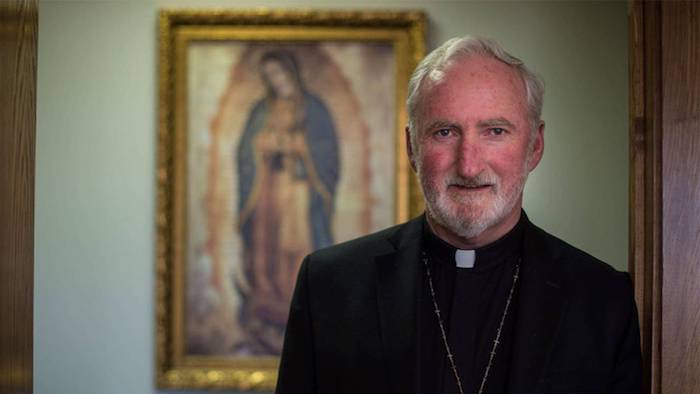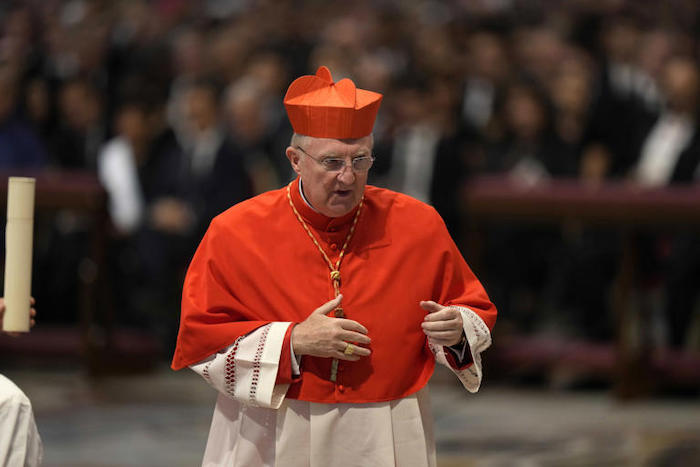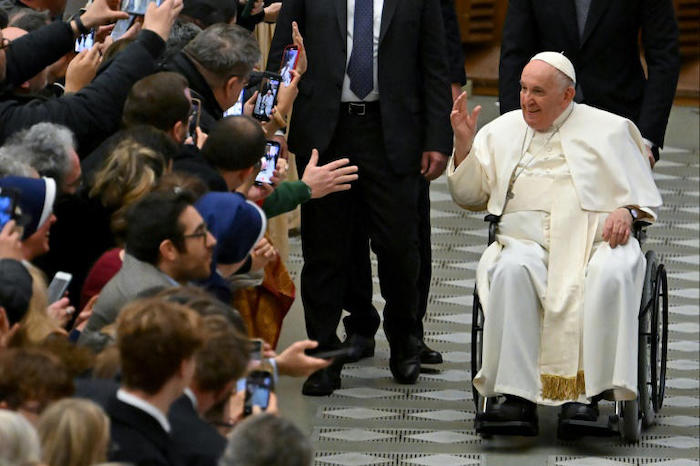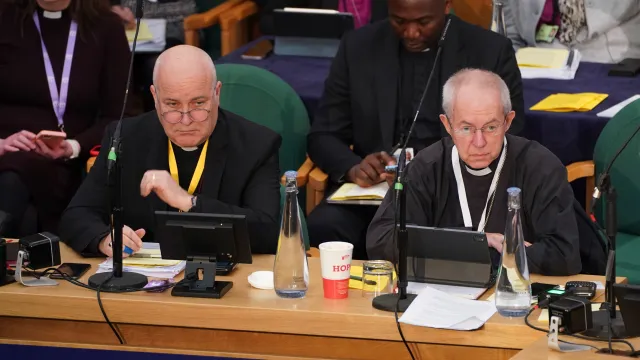— Contribution by Bishop O’Connell which endorsed non-traditional families was cut from World Meeting of Families video in 2018

A video expressing support for same-sex parents and other non-traditional families by Bishop David O’Connell (69), who was shot dead in a Los Angeles suburb last Saturday, was cut from the World Meeting of Families promotional material.
In March 2018, six months before the World Meeting of Families took place in Dublin, it emerged words of his were cut from a video prepared to promote that event.
These words included: “Pope Francis, he gets it. He gets it that our society has changed so much in the last couple of generations. We have all sorts of configurations of families now, whether it’s just the traditional family of mum and dad together, or it’s now mum on her own or dad on his own, or a gay couple raising children, or people in second marriages. No matter what the configuration of the family is, the call is still to adults to think about how to provide the best, most loving, faithful environment for children possible.”
At the time a spokeswoman for the World Meeting of Families said: “The wrong version of the video for Parish Session 1 was inadvertently uploaded for a short time but the correct version is now in place.”
From Glanmire in Cork, Bishop O’Connell served in the Archdiocese of Los Angeles after his ordination in 1979 at Dublin’s All Hallows College. After many years ministry in some of the more disadvantaged parishes of south Los Angeles, he was named an Auxiliary Bishop of the Archdiocese in 2015.
The original Bishop O’Connell video attracted the attention of the US-based fundamentalist Catholic Church Militant website which said it “promotes the sin of homosexuality” in an article headed `Sodomy Supporters Hijack World Meeting of Families’.
Bishop O’Connell did not attend the World Meeting of Families in Dublin in 2018, although he and a group of 45 people from the Los Angeles Archdiocese had been on pilgrimage in Ireland days before the event began in Dublin on August 25th that year.
Interviewed at the time, he did not comment on the censoring of his video, but did say Pope Francis faced “an impossible task” on his visit to Ireland for the World Meeting of Families because of the shadow cast by clerical child sex abuse scandals.
Reflecting on the visit to Ireland of Pope John Paul II in 1979, Bishop O’Connell said “we thought this would be a revival of the Catholic Church in Ireland, which even at that time we needed.
“Even though the faith and practice were very strong, among many of my peers, my generation was already turning away from the Catholic faith even in the 1970s. We were hoping for a revival, and we thought that there would be.”
He continued: “But then of course, there was scandal and the trust broke, and now we’ve had stories coming out for a whole generation. It’s given everybody who didn’t want to go to church anymore a reason to say, ‘I’m over with all that. It’s all hypocrisy, there’s too much child abuse, abuse of people’.”
For Pope Francis “to be able to deal with all these issues in 32 hours? Obviously, he can’t,” he said.
Fluent in Spanish, prior to becoming an auxiliary bishop he attracted much positive attention for his work with African Americans and Hispanic communities in addressing immigration, unemployment, and south Los Angeles’s history of gang violence.
At a At a press conference following his announcement as auxiliary bishop he said: “I can walk around the streets of South LA and have done so for many years, where there’s violence and shootings, and I don’t feel the slightest bit of anxiety. But I come in here today and I’m shaking in my boots.”
He was also a liberal in Catholic Church terms as far back as 2002 when in a Los Angles Times profile he said “women should be ordained and clergy should be able to marry.” On the issue of clerical abuse and its cover-up he said that “if there had been some parents in there running things, none of this would have ever happened”.
At the time of the 1992 Los Angeles riots in which over 60 people died following the brutal beating of Rodney King by police, then Fr O’Connell was in Washington DC giving evidence about violence in urban America to a committee of Congress. He returned to Los Angles to find widespread destruction in his parish. He and other local faith leaders held meetings with sheriffs and members of the LAPD in people’s homes to build trust. Violent deaths began to decrease.
In recent years he had been chairman of the Church’s Southern Californian Immigration Task Force which helped coordinate a response to the influx of migrants from Central America. He was also chair of chairman of the US Conference of Catholic Bishops’ Subcommittee on the Catholic Campaign for Human Development.
Complete Article ↪HERE↩!




